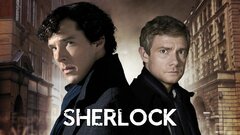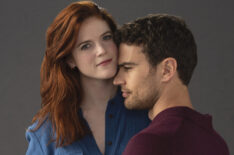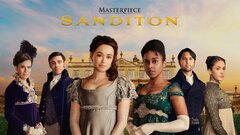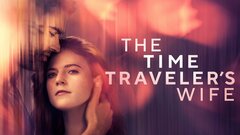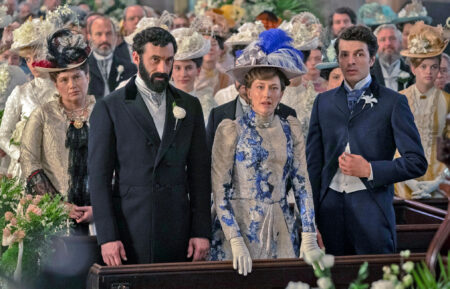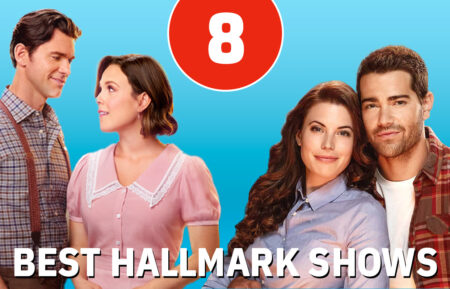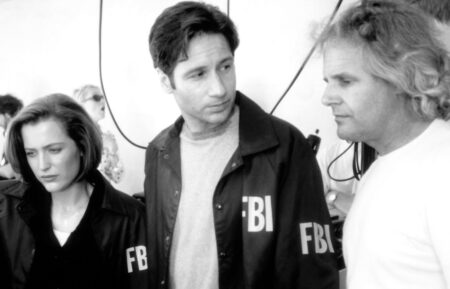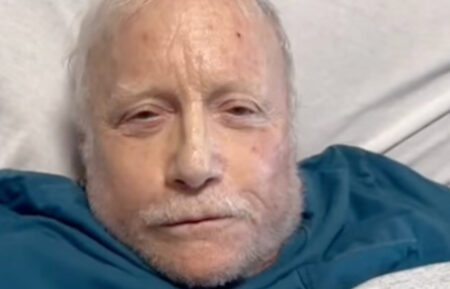Review: ‘The Time Traveler’s Wife’ Is Unwatchable
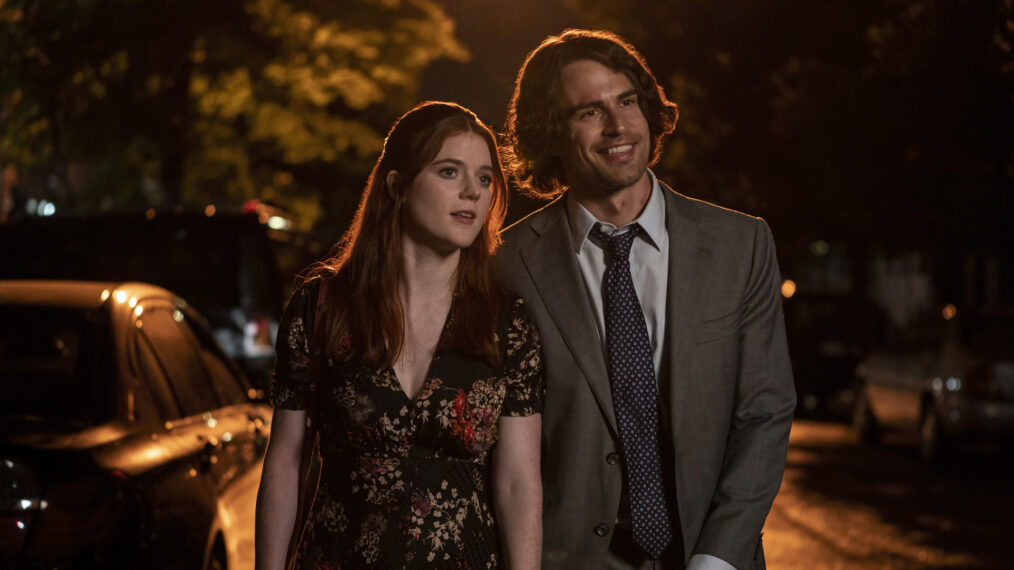
Review
Fans of Audrey Niffenegger’s beloved novel The Time Traveler’s Wife, who were most likely stoked when they heard a new adaptation was coming to their television screens, will abhor HBO’s new drama series of the same name. People not familiar with the book…will probably also hate it. A romance for the ages, Henry DeTamble is a dashing librarian plagued by a genetic disorder that makes him involuntarily time travel, often into dangerous situations, and also back to his wife Clare Abshire’s own childhood. From Steven Moffat, most well known for his run of Doctor Who and as the creator of Sherlock, the show makes one baffling decision after another, leaving it entirely unwatchable.
From the jump, Theo James (Sanditon) and Rose Leslie (Game of Thrones) are odd choices for Henry and Clare. They both inject their characters with a rough, aggressive quality, subverting what should feel like a sweet love story. This is in contrast to the ill-received 2009 film, which, however you feel about it, nailed the casting with Rachel McAdams and Eric Bana, who fully embody the characters’ demure and bookish personas. Whereas James and Leslie spend most of their screen-time screaming at each other.
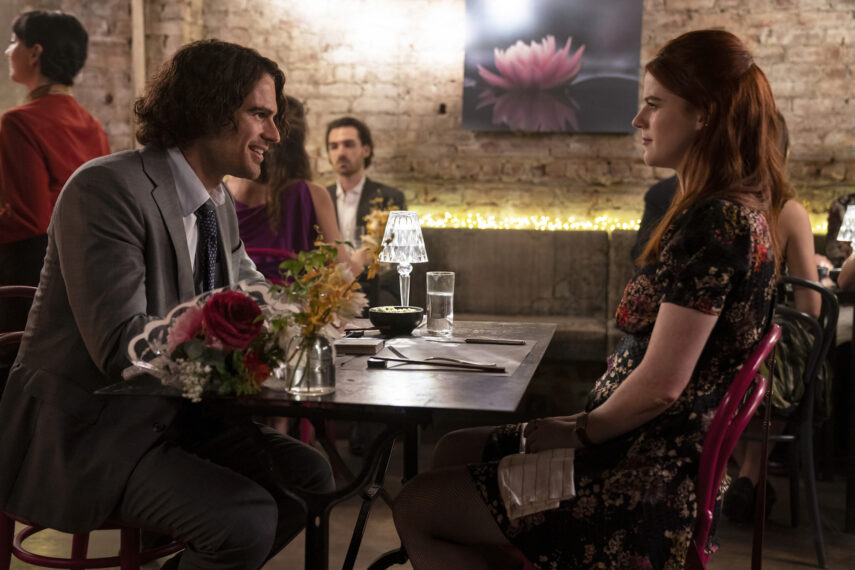
Macall Polay/HBO
The couple who love poetry, opera, punk music, and can talk for hours while playing chess are gone. In their place are two people who have nothing in common, and have no reason to be together other than fate (aka time travel) pushing them together. Their very first date ends in Henry calling Clare crazy and she, in turn, throwing her shoe at him, and needing to be convinced by a visiting, older version of Henry to give each other another shot. As the season progresses, and they get more serious, the bickering never lets up. Clare constantly laments that this younger version of Henry is not as good as the older version she’s grown up with. But even in the scenes of him with a teenage Clare, played unconvincingly by the 35-year-old Leslie, they are persistently at odds. There’s hardly ever a moment where they’re just getting along. Is this the couple we’re supposed to root for?
It’s not only Clare that Henry yells at — it’s everyone. He’s shockingly mean to his childhood self, as he teaches a young Henry about time travel and how to survive it, with lessons like pickpocketing, since whenever he travels he leaves his clothing and all other possessions behind. Any opportunity at tenderness is passed up in favor of melodramatic conflict, made all the worse by James’ and Leslie’s overacting.
While Moffat is a self-professed huge fan of the book, the show uses the source material more as inspiration, which would be fine if the new version made any sort of sense. The series has the unusual framing device of Henry and Clare making videos where they talk about their lives for no explicable reason. The six-episode season (I’ve seen all six) hits most of the major story-beats of the book, but twists each of them until their meaning is entirely different, and all nuance has been stripped out. A sensitively done sexual assault arc in the book is sensationalized to the point of bordering on offensive. Even the simple act of getting Clare flowers is made into something harsh and violent. A dinner party that could subtly highlight the peculiar dynamics at play with Clare’s friends, Charisse (Natasha López) and Gomez (Desmin Borges), is converted into a scene of high camp so outlandish, it led to me yelling “what?!” at my screen every other minute. The stilted, on-the-nose writing produces eye-roll-worthy lines like “Love is what gives hope to mortals. It’s the cruelest thing I know.” This isn’t helped by many lines being pulled from the book’s narration and inserted as awkward dialogue.
The time travel rules have been changed too. Instead of just Henry being displaced in time, parts of him also travel around. A baby tooth shows up on the table, a pool of Henry’s blood temporarily appears in the bathroom, cut strands of hair after a haircut may suddenly appear. The purpose of this gimmick becomes apparent at the end of the first episode in the form of an image of Henry’s frozen, amputated feet. It is clearly meant to ominously foreshadow an awful fate, but comes off as laughably ridiculous.
The season has an undeniable pacing problem. A lot of this is owed to added drama that drags out plot-points. More understandable is the massive amount of time it focuses on them as kids. It’s therefore surprising when the show leaves out major elements — it swaps the angst of Clare’s mom having bipolar disorder for her parents (Jaime Ray Newman and Michael Park) simply being judgmental of Henry’s career; Charisse is barely a character outside of one exceptionally weird scene — and cuts small but significant details like Henry being Jewish (I have a theory that this is because James could never in any sense pass for Jewish). But the most confounding piece of information is that this is not a limited series. One would think that six whole episodes would be enough to adapt a 500-page book (in contrast, the 10-episode first season of Game of Thrones adapted its 900-1,000 page book down to the last detail), but the show only gets midway through recounting the book, and is planning on at least one more season to finish its tale.
Aside from the bad writing, acting, and plot choices, the show even looks poorly produced. The wig James sports for much of the series is dreadful, as is the makeup he and Leslie wear for the scenes where they play older versions of themselves. Some of the costume changes are questionable as well. The meadow that is so central to their relationship looks like a set — the rock and the shrubs look fake. It’s hard to think of an element of this show that doesn’t go out of its way to be bad. If only time travel were real, they could use it to go back and do it right.
The Time Traveler’s Wife, Series Premiere, Sunday, May 15, HBO and HBO Max
